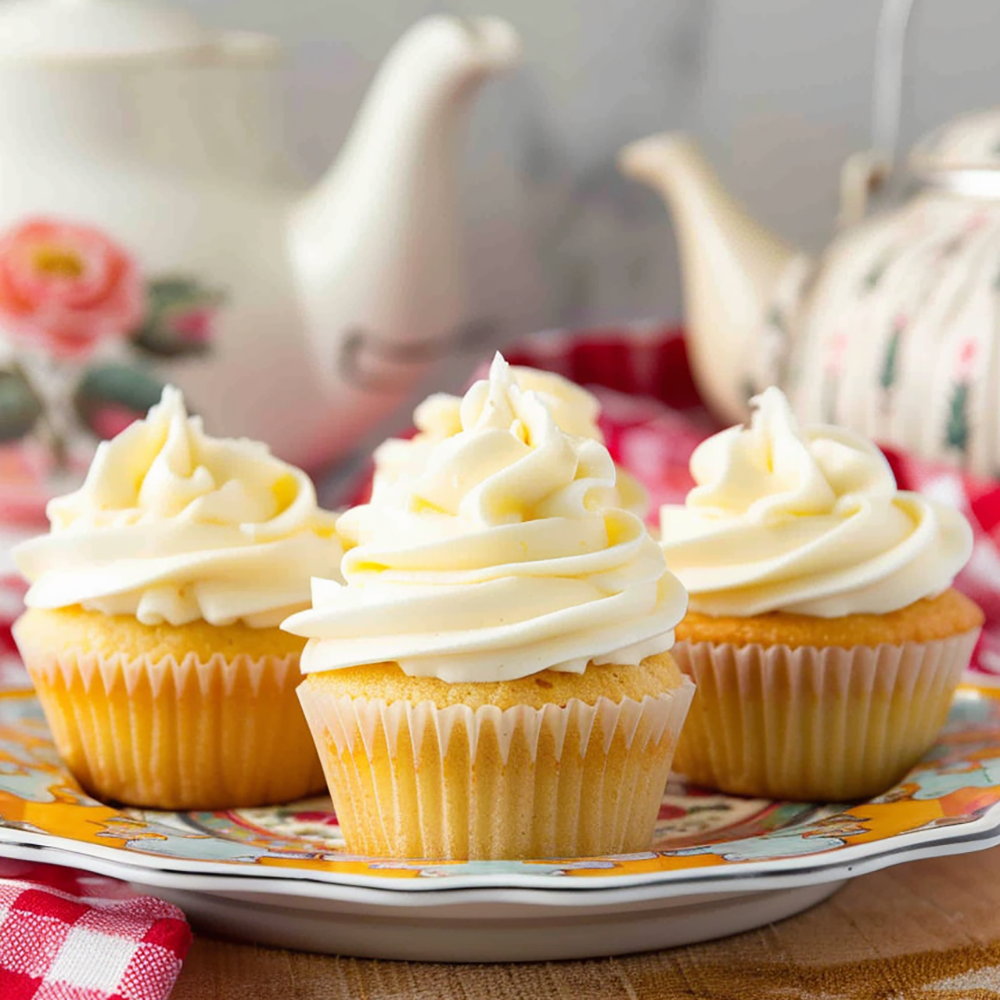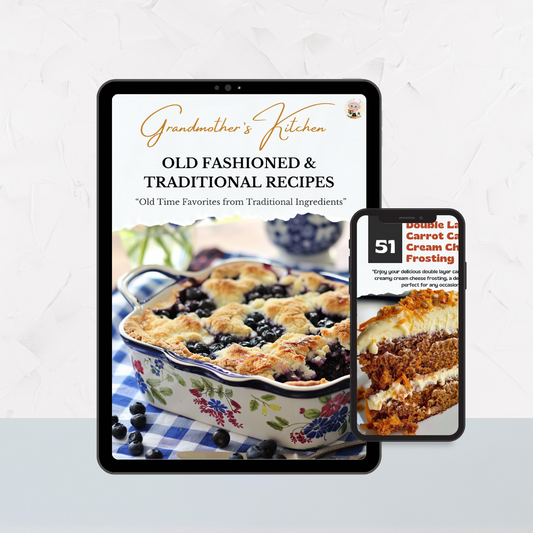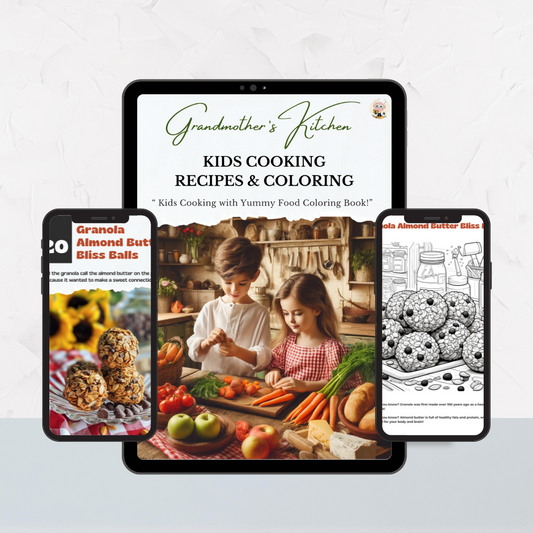Vegan Vanilla Cupcakes with Fluffy Frosting – Perfect for Parties

Share
Vegan Vanilla Cupcakes With Frosting
There’s nothing more fun than making vegan vanilla cupcakes for parties. I always want to make sure everyone has something sweet to enjoy, no matter their dietary preferences. These cupcakes are the perfect solution for accommodating vegan friends and family. They’re so simple to make, and the best part is that they come out fluffy and delicious every time. I usually bake the cupcakes the night before, then frost them the day of the party. Piping the frosting on with a few rainbow sprinkles makes them look extra festive! It’s amazing how a little effort can create such a beautiful dessert, and even non-vegans love these treats. Plus, they’re a fun addition to any celebration—simple, yet special enough for any occasion.
Did you know?
The Secret Behind Fluffy Vegan Cupcakes: Vegan baking often gets a bad rap for being dense or dry, but with the right ingredients, vegan cupcakes can be just as fluffy and moist as their non-vegan counterparts. The secret lies in the use of plant-based milk and vinegar, which together act as a buttermilk substitute, creating a tender crumb. Additionally, using aquafaba (the liquid from a can of chickpeas) can mimic the binding properties of eggs, adding lift and lightness to the batter. These ingredients ensure that our Vegan Vanilla Cupcakes with Frosting are not only delicious but also perfectly fluffy!
Yield: 12 cupcakes
Ingredients
1 1/2 cups all-purpose flour
1 cup granulated sugar
1 teaspoon baking powder
1/2 teaspoon baking soda
1/2 teaspoon salt
1 cup plant-based milk (e.g., almond, soy, or oat)
1 teaspoon apple cider vinegar
1/2 cup vegetable oil (we used grapeseed oil)
1 tablespoon vanilla extract
For the Frosting
1/2 cup vegan butter, at room temperature
2 cups powdered sugar
2 tablespoons plant-based milk
1 teaspoon vanilla extract
Instructions
Preheat oven to 350°F (175°C) and line a 12-cup muffin tin with liners. In a large bowl, whisk together flour, sugar, baking powder, baking soda, and salt. In a separate bowl, mix plant-based milk with apple cider vinegar and let sit for 2–3 minutes to curdle.
Add oil and vanilla to the milk mixture and stir. Combine the wet and dry ingredients, mixing until just combined.
Divide the batter evenly among cupcake liners, filling each about ⅔ full. Bake for 18–20 minutes, or until a toothpick inserted in the center comes out clean. Cool cupcakes in the tin for 5 minutes, then transfer to a wire rack to cool completely.
To prepare the frosting, beat vegan butter until creamy. Gradually mix in powdered sugar, plant-based milk, and vanilla extract until smooth and fluffy.
Once cupcakes are fully cooled, frost generously and decorate as desired.
Nutritional Information (Per Serving): Calories: 250 | Protein: 2g | Carbohydrates: 37g | Fiber: 1g | Net Carbs: 36g | Fat: 11g | Saturated Fat: 3g | Cholesterol: 0mg | Sodium: 150mg | Sugars: 26g | Glycemic Index: Medium
Kitchen Tips, Great Ideas, How to Save Money
- Budget-Friendly Ingredients: Use generic brands for staples like flour and sugar. Buy in bulk to reduce the cost per unit, ensuring you always have essentials on hand.
- Homemade Substitutes: Consider making your own vegan butter using plant-based oils and nut milks. Also, homemade vanilla extract is easy and cost-effective.
- Efficient Mixing: Overmixing batter leads to dense cupcakes, so mix just until ingredients are combined.
- Frosting Tips: Whip your frosting longer to make it fluffier. Blend granulated sugar in a blender if you're short on powdered sugar.
- Creative Decorations: Use natural food coloring like beet juice for vibrant frostings without store-bought dyes.
- Storing and Freezing: Store unfrosted cupcakes at room temperature for up to three days. Freeze unfrosted cupcakes for up to three months.
- DIY Sprinkles: Make your own sprinkles using powdered sugar, water, and food coloring. Pipe thin lines, dry, and break into pieces.
- Smart Baking Practices: Preheat the oven only when you're ready to bake, and use silicone mats instead of parchment paper to save money.
- Minimize Waste: Use leftover frosting on other desserts or as a spread. Cupcake crumbs make great ice cream or yogurt toppings.
- Learning and Sharing: Join online vegan baking communities for ideas and troubleshooting tips.
Let’s Learn About Vegetable Oils
Vegetable oils are widely used in both cooking and baking, offering a versatile range of options for different types of recipes. Common vegetable oils include sunflower, canola, and grapeseed oil. These oils are neutral in flavor, making them ideal for recipes where you don’t want the oil to overpower the other ingredients.
While vegetable oils are convenient and widely available, it’s important to consider their source and processing methods. Many vegetable oils are highly refined, which can strip them of beneficial nutrients and introduce unhealthy fats. Cold-pressed or extra-virgin oils, such as olive oil or grapeseed oil, are less processed and retain more of their natural nutrients.
Another factor to consider is the balance of omega-3 and omega-6 fatty acids. Some oils, like sunflower and corn oil, are high in omega-6s, which can contribute to inflammation if consumed in excess. Opting for oils with a better balance, such as flaxseed oil or olive oil, can promote better overall health.
Vegetable oils come in different varieties, and choosing the right one depends on your cooking needs. For high-heat cooking, oils with a higher smoke point, like avocado or canola oil, are best. For baking or cold dishes, extra-virgin olive oil or coconut oil adds a richer flavor. Overall, vegetable oils are a staple in the kitchen, but it’s always good to be mindful of quality and balance.


